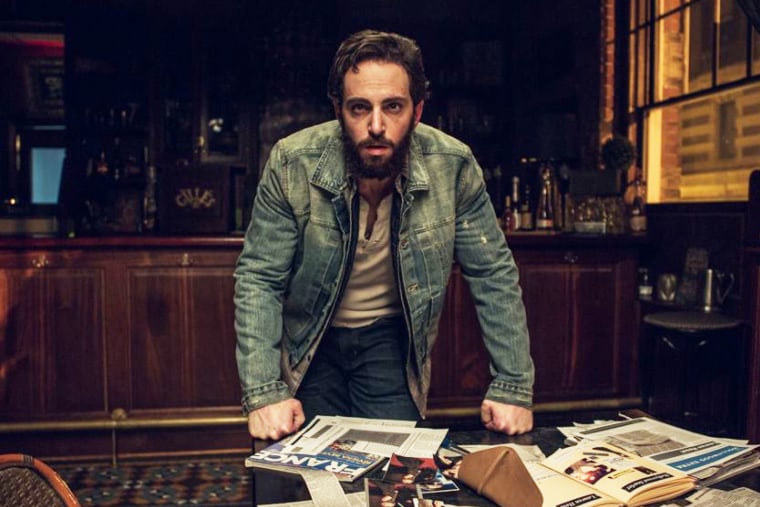In 2018, Zachary Joseph Horwitz, who acts under the name Zach Avery, bought a $6 million house in Los Angeles.
He was arrested this week and charged with fraud.
The home, which is marked for sale with a pending offer, is listed on Zillow as a six-bedroom, eight-bathroom, 7,670-square-foot "reimagined Traditional estate by famed designer Lonni Paul."
The home boasts a pool and an adjoining spa, a cabana with a fireplace, a chef's kitchen, "a private master suite with custom closets and a spa-like master bath" and a "chilled 1,000-bottle wine cellar," according to the Zillow listing.
Photos on Zillow show a living room that opens to a covered outdoor patio, a grand piano below a stunning chandelier and a massive abstract piece of artwork, a home theater with 10 plush recliners and a sectional, and a home gym worthy of a luxury hotel.
According to his IMDb profile, Horwitz has 15 acting credits to his name. Four of them are for shorts; about half of them credit him as an unnamed extra.
Still, after Horwitz bought the house, he "wired two payments of $70,000 to Lonni Paul Design for retainer/couch/side table," according to a criminal complaint the Securities and Exchange Commission filed Monday in U.S. District Court for Central California.
And a week before Horwitz bought his beautiful Beverlywood estate, he paid off nearly $300,000 in credit card debt, the complaint says.
Horwitz swiftly paid American Express in three installments: First, he put $70,328.05 toward the card, then $57,351.25 and, finally, $164,241.06, the criminal complaint says.
The money, prosecutors said, belonged to investment groups. Horwitz is alleged to have told them that their money would multiply risk-free because it would purchase distribution rights to films, which he said he would "license to major online platforms such as Netflix or HBO," according to the criminal complaint.
Horwitz, 34, is accused of scamming five investor groups, although the bulk of the funds he acquired were from a private firm. He would send fake annual reports to the investors from his fraudulent company, 1inMM Capital, complete with a graphic of a nonexistent film library, prosecutors allege.
Some of the money Horwitz made in what prosecutors said was a $227 million scheme "was used to repay investors for previous investments ... consistent with a Ponzi scheme," according to the affidavit. "In some instances, the investors were repaid with their own money," the complaint says.
He had to start paying them something, prosecutors said, because in 2019, the investors started to complain.
When Horwitz was unable to pay investors dividends, he would doctor emails to look like they were from HBO and Netflix executives explaining the delay in funds, the criminal complaint says. Netflix and HBO have denied that they engaged in any business with Horwitz or 1inMM Capital, according to the affidavit.
Netflix sent a cease-and-desist letter in February demanding that Horwitz "stop making misrepresentations regarding his agreements with Netflix," prosecutors said. But he is alleged to have continued to forge emails to look like they were from Netflix, making excuses to investors about why they had not been repaid.
Horwitz was taken into custody Tuesday by the FBI on a wire fraud charge, the U.S. attorney's office for Central California said in a statement.
Federal authorities requested that the complaint be sealed, arguing that because Horwitz has started to sell his house and "not all the proceeds of his fraud scheme have been traced," he is a flight risk.
Court documents show that a judge ordered the case to be unsealed Tuesday.
Even though the house is for sale, Horwitz still occupies it, according to the criminal complaint. And Horwitz has not set up mail forwarding, it says.
He is due in court April 19.
His attorney, Anthony Pacheco, did not respond to repeated requests for comment Wednesday and Thursday.

